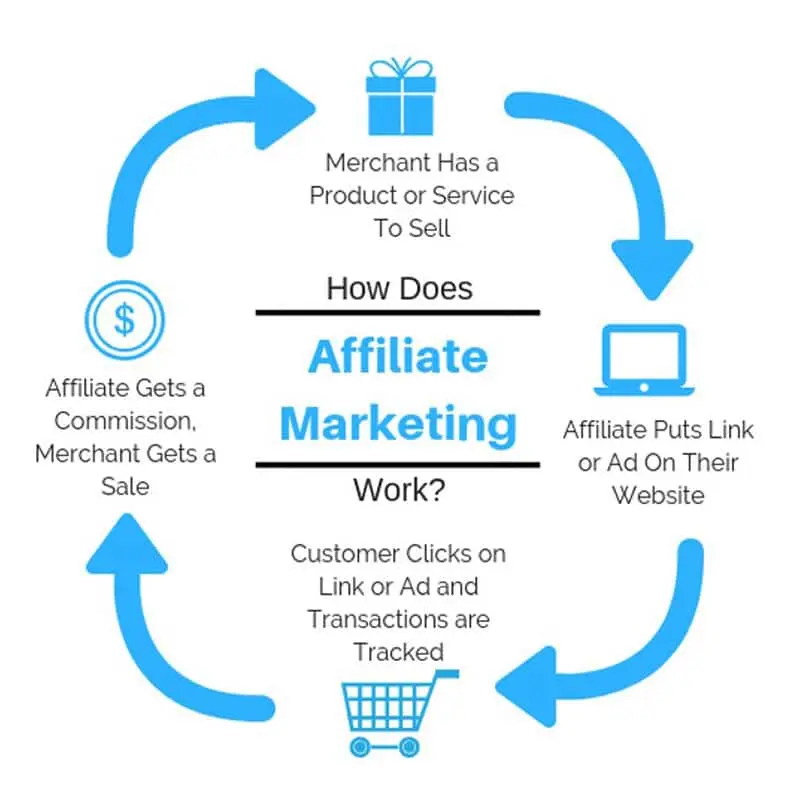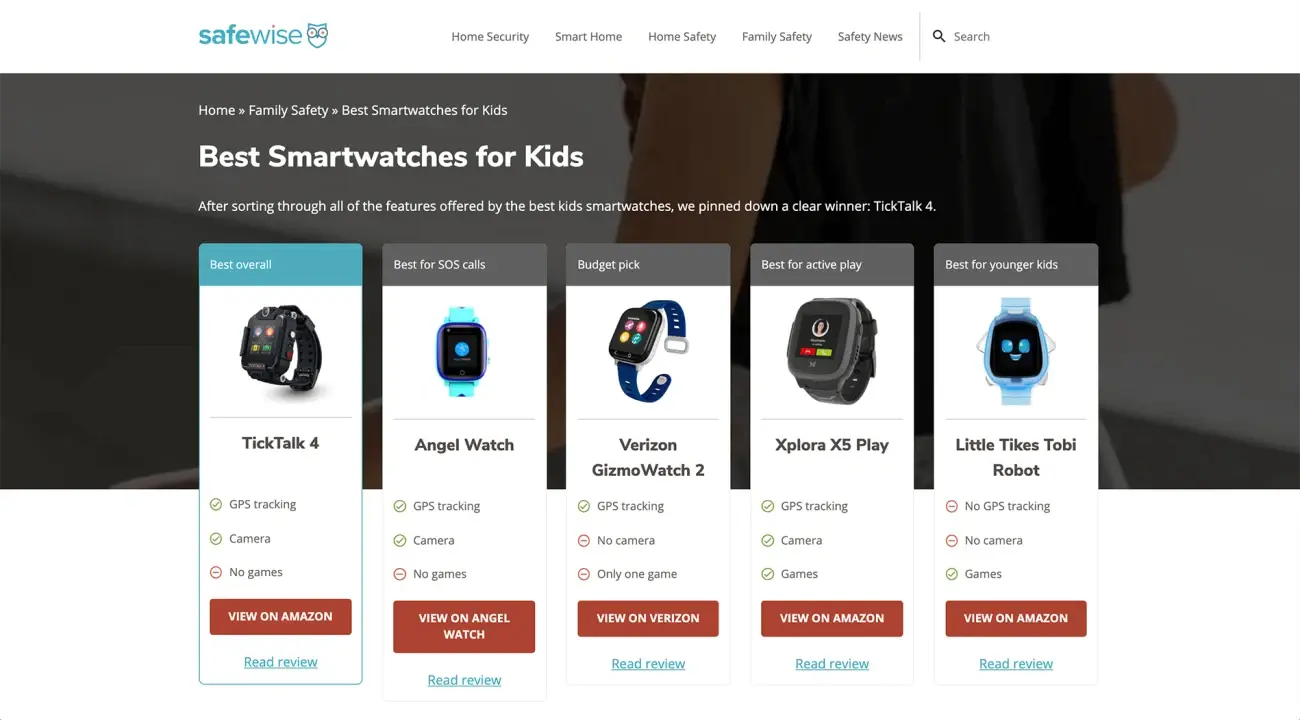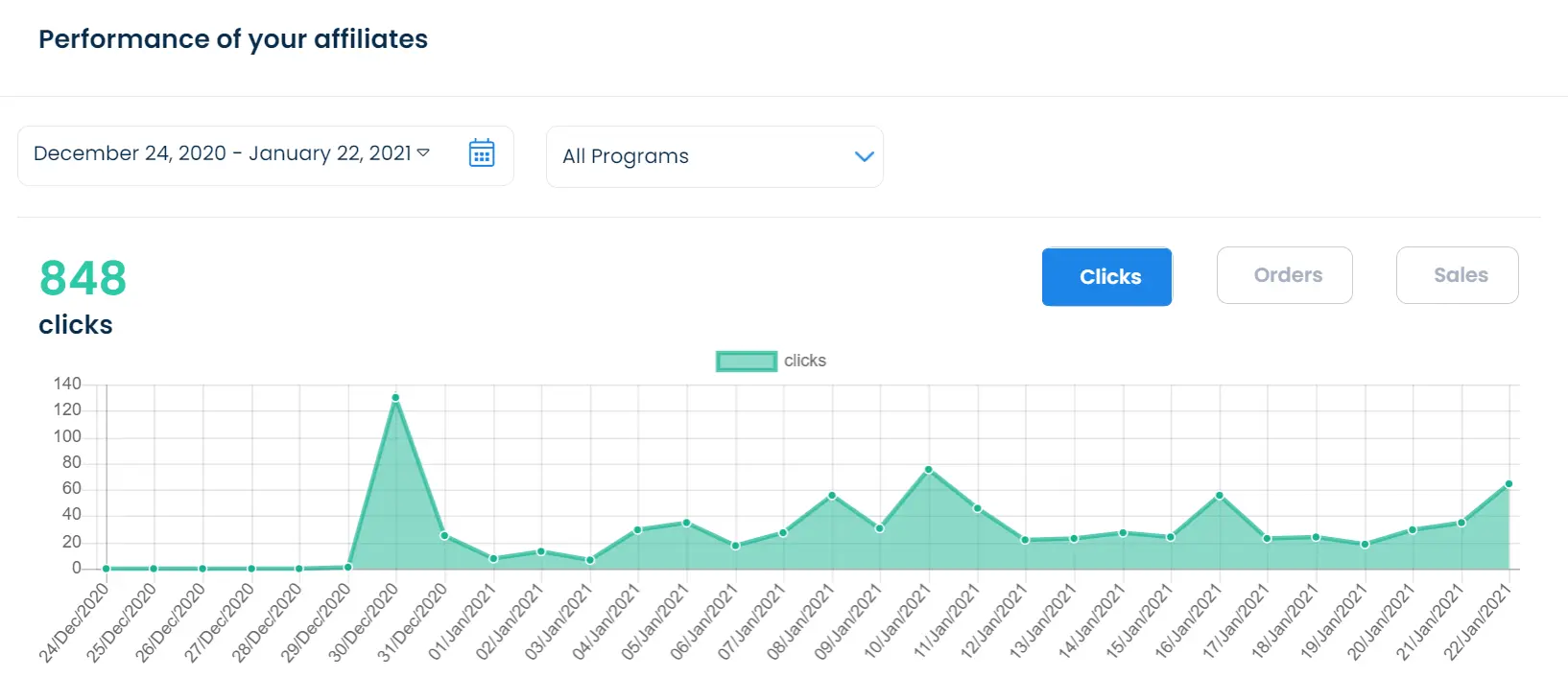Is affiliate marketing worth it? This is a question that I get a lot, and it's one that doesn't have an easy answer.
There are a lot of factors that go into whether or not affiliate marketing is right for you, and ultimately the decision comes down to what you're looking to get out of it.
In this article, I'll break down some of the key points to consider if you're wondering if affiliate marketing is worth your time.
What is Affiliate Marketing?
First, let's start with the basics: What is affiliate marketing?
Affiliate marketing is a type of performance-based marketing in which a business rewards an affiliate for each new customer or sale generated by their promotional efforts.

There are four main models for affiliate marketing: pay per sale, pay per lead, pay per click, and cost per mille.
Pay per sale model: Under this model, affiliates are paid a commission based on the sale of a product or service. For example, if an affiliate promotes a product and a customer makes a purchase, the affiliate will receive a commission.
Pay per lead model: This model is similar to pay per sale, but under this model, affiliates are paid based on the number of leads they generate. For example, if an affiliate promotes a product and a customer expresses interest in that product, the affiliate will receive a commission.
Pay per click model: Under this model, affiliates are paid based on the number of clicks they generate. For example, if an affiliate promotes a product and a customer clicks on that product, the affiliate will receive a commission.
Cost per mille model: Under this model, affiliates are paid based on the number of impressions they generate. For example, if an affiliate promotes a product and a customer sees that product, the affiliate will receive a commission.
What Are the Pros and Cons of Affiliate Marketing?
As an affiliate marketer, you have the potential to earn a lot of money. But like any other business venture, there are both pros and cons to consider before you get started.
Here are a few things to keep in mind:
Pros of Affiliate Marketing:
1. Affiliate marketing can be extremely profitable. If you choose the right products or services to promote and have a solid marketing strategy, you can make a lot of money. Here is how much growth dating site Kismia received after they launch their affiliate marketing program:

2. It’s relatively easy to get started. You don’t need your own product or service – you can simply promote someone else’s and earn a commission on every sale.
3. There are no geographical limitations. You can do affiliate marketing from anywhere in the world.
4. It’s a great way to build an online presence. If you do it right, affiliate marketing can help you build a strong brand and a large audience.
5. It’s flexible. You can be as involved or as hands-off as you want to be.
Cons of Affiliate Marketing:
1. It takes time to build up a successful affiliate marketing business. Don’t expect to make a lot of money overnight – it takes hard work, dedication, and patience.
2. You need to have some marketing skills and knowledge. While affiliate marketing is relatively easy to get started with, it does require some basic marketing skills and knowledge. Otherwise, you won’t be successful.
3. You need to constantly be marketing. If you want to make money from affiliate marketing, you need to be constantly promoting your affiliate links. This can be time-consuming and tiresome.
4. There’s competition. With so many people doing affiliate marketing, it can be tough to stand out from the crowd.
Is Affiliate Marketing Worth It: Which Factors to Consider?
When it comes to affiliate marketing, there are a few key factors to consider before taking the plunge. Here's a quick rundown of what you should keep in mind:
1. Your Audience
Who are you targeting with your affiliate links? If you're trying to reach a wide audience, affiliate marketing may not be the best option.
But if you have a specific niche audience that you think would be interested in the products or services you're promoting, then affiliate marketing could be a good fit.
2. Your Products or Services
Do your research and make sure they're reputable and offer good value. There's no point in promoting something that no one wants or that isn't worth the price.
Affiliate marketing is a great way to generate even more revenue from a product or service that is already selling well. If you have a product or service that people are already interested in, then adding an affiliate program can help you make even more sales.
3. Your Own Time and Effort
Affiliate marketing can be a great way to make money, but it does take time and effort to get started and to continue to grow your business. Be prepared to put in the work if you want to see results.
You'll need to create attractive banners and links, write compelling content to promote your products, and track your results. If you're not ready to put in the time and effort, then it's probably not the right time to start as an affiliate.
4. Your Competition
Take a look at what other people in your niche are doing with their affiliate links. If there's a lot of competition, you may have to work harder to stand out from the crowd. But if there's not much competition, you may have an easier time getting noticed.
5. Your Goals
What do you hope to achieve with your affiliate marketing business? Do you want to make a full-time income? Or are you just looking to supplement your current income? Keep your goals in mind as you decide whether affiliate marketing is right for you.
6. Your Reputation
If you have a good reputation online, then starting an affiliate program can help you make even more money. People will be more likely to trust your recommendations and buy products from you if they know that you're an expert in your field.
Now that you know when you should (and shouldn't) start an affiliate program, it's time to make your choice!
If you have a product or service that is selling well and you're ready to commit time and resources to promoting it, then starting an affiliate program could be a great way to boost your sales.
Affiliate Marketing: 7 Tips to Create a Successful Affiliate Marketing Program
Affiliate programs can be extremely beneficial for businesses, but only if they are well-run and properly organized.
Here are some tips you should consider if you want to create a successful affiliate program:
1. Define Your Goals Clearly
One of the most important aspects of any affiliate program is goal setting. Without clear goals, it can be difficult to measure the success of the program and make necessary adjustments.
There are a few things to keep in mind when defining goals for your affiliate program. First, consider what you hope to achieve with the program.
Are you looking to increase brand awareness? Drive traffic to your website? Generate leads?
Once you know what you want to accomplish, you can start setting specific goals. It's also important to make sure that your goals are realistic and achievable.
Overly ambitious goals can set you up for disappointment and make it difficult to gauge the success of your program.
Finally, make sure to regularly review and adjust your goals as needed. This will ensure that your affiliate program is always on track and meeting your business needs.
2. Identify Your Target Audience
Who do you want to reach out to? You need to have a good understanding of who your ideal audience is before you can target them. To identify your target audience correctly, consider who your product or service is designed for.
If you're selling a children's toy, your target audience is likely to be parents or guardians of young children. If you're promoting a new type of software, your target audience is probably people who use computers regularly.
Knowing who your product is for will help you determine who to target with your affiliate program.
Second, think about where your target audience spends their time online. If they're on social media, there are ways to target them with ads and content that specifically relate to their interests. Knowing where your target audience hangs out online will help you find them more easily.
Finally, consider what kind of messaging will resonate with your target audience. If they're likely to be responsive to humor, use that in your marketing. If they prefer serious and factual information, make sure your content reflects that.
Take some time to think about what will appeal to your target audience before you start promoting your affiliate program. Doing so will help you get better results from your marketing efforts.
3. Find Trustworthy and Reliable Affiliates
One of the most important aspects of starting an affiliate marketing program is finding affiliates who are trustworthy and reliable.
Here are a few tips on how to find those affiliates:
- Make sure they have a good reputation. You can check this by doing a simple Google search of their name or business. If there are any negative reviews or articles about them, steer clear.
- See if they're active on social media. This is a good way to gauge their popularity and whether or not people like working with them.
- Ask around. Talk to other businesses in your industry and see if they have any recommendations for good affiliates.
- Check out their website. See if it's professional and up-to-date. If it looks like they're not taking their business seriously, they're probably not the right affiliate for you.
- Make sure they're a good fit for your brand. You want your affiliates to be a good representation of your company, so make sure they share your values and have a similar target audience.
By taking the time to vet your affiliates, you'll ensure that your program is successful and beneficial for both parties involved. Finally, you can contact affiliate networks and request a list of recommended affiliates.
CJ Affiliate, Amazon Associates, ShareASale, and ClickBank are some of the most popular affiliate networks out there.
4. Create Attractive Incentives
In order to get affiliates on board, you need to offer them something that's worth their while. That could be a commission on sales, access to exclusive deals or discounts, or other types of rewards. The key is to create an incentive structure that's fair and attractive to both you and your affiliates.
5. Design User-Friendly Landing Pages
The key to designing user-friendly landing pages for your affiliate programs is to make sure they are easy to navigate and understand. The last thing you want is for potential customers to click away because they couldn't find what they were looking for.
Here are some tips to design user-friendly landing pages:
Use Clear and Concise Headlines
Your headline should be the first thing people see when they land on your page. Make it catchy and to the point so that people know what they're going to get by reading more.

Use Strong Visuals
People are visual creatures, so using images and videos on your landing page can be very effective in getting your message across. Use high-quality visuals that are relevant to your offer and make sure they are placed prominently on the page.
Use Persuasive Copy
Your goal is to get people to take action, so your copy should be focused on persuading them to do just that. Use strong calls-to-action and make it easy for people to understand what they need to do next.
Keep it Short and Sweet
People have short attention spans, so you want to make sure your landing page is easy to scan and digest. Get rid of any unnecessary fluff and keep your copy concise and to the point.
6. Foster Two-Way Communication
A successful affiliate partner program requires two-way communication between you and your affiliates. You should regularly communicate with your affiliates about things like new products, upcoming promotions, and changes to the program.
And you should make it easy for them to get in touch with you if they have any questions or concerns.
7. Monitor and Adjust
No affiliate partner program is perfect, so it's important to monitor your program regularly and make adjustments as needed. Keep an eye on things like conversion rates, click-through rates, and average order values.
Here is an example of such a performance report:

If you see any red flags, don't be afraid to make changes to the program in order to improve its performance.
By following these tips, you can create a successful affiliate partner program that helps you achieve your business objectives.
FAQs
1. Is affiliate marketing really profitable?
Affiliate marketing is a growing industry. If done correctly, it can help you increase your income considerably. However, there is a lot of competition in most industries. So, you really need to strategize and put in good time and effort to get success with affiliate marketing.
2. Is it worth being an affiliate marketer?
Affiliate marketing is a great way to make money online. But it's not easy money. You'll need to put in a lot of hard work to succeed as an affiliate marketer.
It takes time and effort to build a successful affiliate marketing business. And it takes even more time and effort to make it sustainable. If you're willing to put in the work, then affiliate marketing is for you.
3. Can you be successful at affiliate marketing?
Of course, you can be successful at affiliate marketing if you invest some time into getting to know your audience, finding the right affiliates, and then optimizing your campaigns regularly.
4. Why is affiliate marketing so hard?
Affiliate marketing is hard because it requires time and patience. It may take a while before you can earn a sustainable income from it. Until then, it’s all work and little to no income.
5. How do I start affiliate marketing as a beginner?
To get started with affiliate marketing, first define your goals and be clear about who your audience is. Next, research the type of affiliates that your competitors are working with.
Is Affiliate Marketing Worth It?
It depends on your definition of “worth it.” If you’re looking to make a quick buck, then probably not. But if you’re looking to build a sustainable business that can provide you with a stream of income, then the answer is a resounding yes!
Of course, there’s no guarantee that you will be successful with affiliate marketing. But if you’re willing to put in the time and effort, then there’s a good chance you will be able to achieve your goals.
While there's no clear-cut answer, it seems that affiliate marketing can be a viable option for those who are willing to put in the work. So, if you're up for the challenge, go ahead and give it a try! Who knows? You might just find that it's worth your while.


Related Articles
What is Affiliate Marketing & How Does It Work?
How to Become an Affiliate Marketer: A Comprehensive Guide
32 Affiliate Marketing Tools Every Smart Marketer Needs to Know in 2024
Top 9 Affiliate Marketing Strategies for 2024
Affiliate Marketing 101: How to Set Up a Profitable Partner Program
Complete Guide to SEO Affiliate Marketing to Help You Make More Money